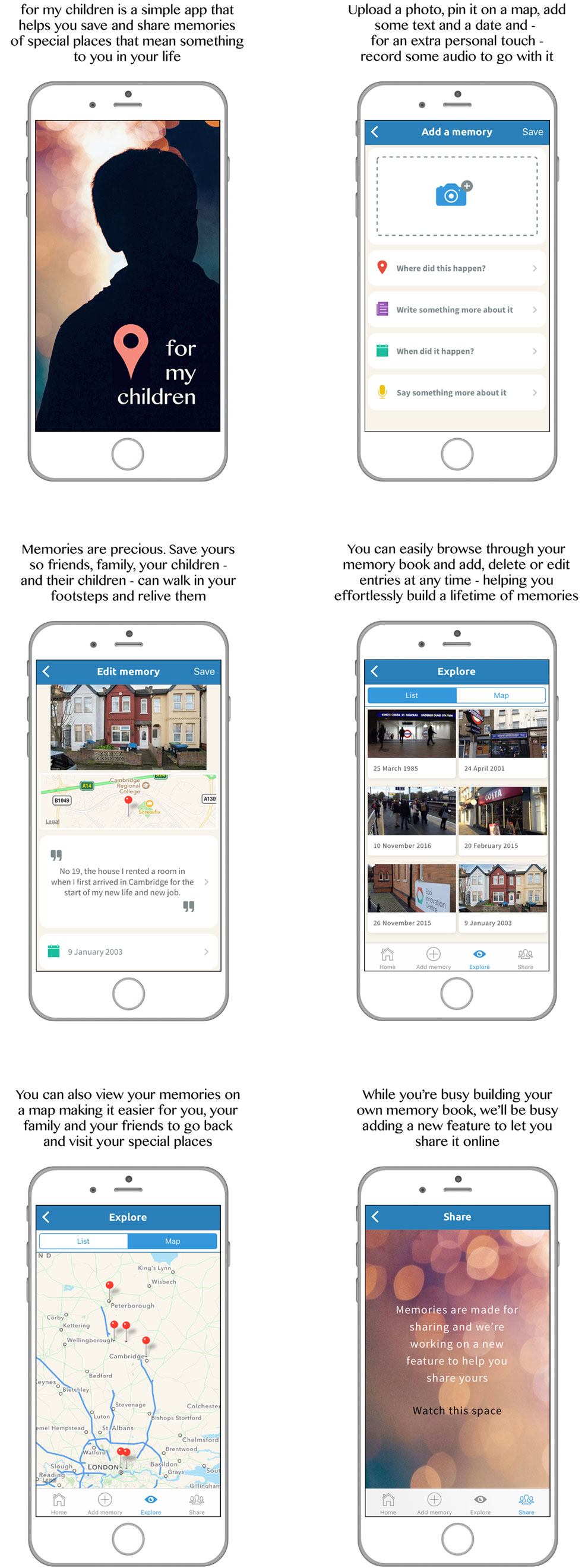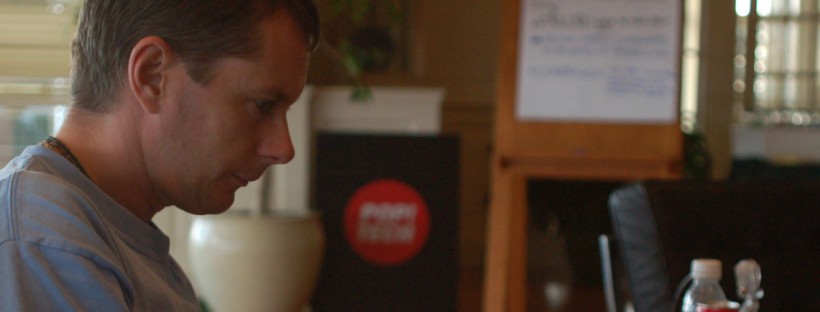It’s no secret to readers of this blog that for a while now I’ve been attempting to get back into coding. This, combined with a growing interest in building sustainability into many of my projects, has fuelled my interest in the potential of mobile apps to build out some of my ideas.
Today sees the launch of my first experimental app. While I didn’t write the code it’s been a useful exercise in understanding the process of app design, app development, testing and publishing. Hopefully the coding piece will fall into place in the new year.
There’s nothing better than scratching your own itch, so my first app does just that. Say hello to for my children.

for my children is a simple app I wish my mother had before she died. It would have let her share those places that were special in her life. Her first school. First home. Favourite cafe. First job. The place she met my father. The old playground she played in as a child – which is now a block of flats. Places I would love to visit and stand today if I only knew where they were.
for my children effectively lets you create your own memory book of special places so your friends, your family, your children – and their children – can one day walk in your footsteps and revisit them. I know it’s something I want to use, and hope you feel the same.
I can also imagine this being useful for early-stage dementia or Alzheimer’s sufferers, helping them capture memories for family while they still can.
It’s only available in the Apple App Store at the moment but we’re planning on building out an Android version soon assuming we generate the income. The online sharing functionality will also come later, budgets permitting. If you like the app and think others might too, please share on your social media and your blog. And if you download it, consider rating it in the App Store. Good ratings will be vital if we’re to develop the idea further. Thank you.
Links
Official website
In the App Store
Information sheet (PDF)
Screenshots (JPG)
App splash screen (JPG)



